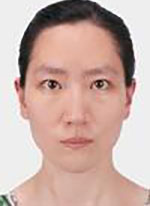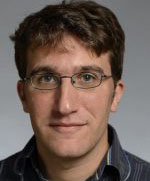Overview
[ Français ]
Conferences from October 31 - November 04, 2022
Lu Wang, Yale University

Biography: Lu Wang has received her PhD in 2011 at MIT. She has held positions at MSRI, Imperial College London, IAS and Caltech. Since July 2021, Lu Wang is professor in the Department of Mathematics at Yale University. Professor Wang’s work in geometric analysis, particularly on special solutions to curvature flows, has been recognized by several grants and awards such as Alfred P. Sloan Research Fellowship and an invitation to speak at the 2022 International Congress of Mathematicians (ICM).
Lecture 1 - This lecture is aimed at a general mathematical audience.
Monday, October 31, 2022, 3:30 pm
Centre de recherches mathématiques
Pavillon André-Aisenstadt, Université de Montréal
Room 5340
Title: An Excursion into Mean Curvature Flow
Abstract: Mean curvature flow is the negative gradient flow of the area functional, so a family of hypersurfaces flows in the direction of steepest descent for area. In general, a mean curvature flow may develop singularities even before it becomes extinct in finite time. In this talk, I will give a guided tour through selected topics in the regularity theory of mean curvature flow. In particular, I will illustrate distinctions between the flows of one dimension and of higher dimensions.
Lecture 2
Tuesday, November 01, 2022, 3:30 pm
Centre de recherches mathématiques
Pavillon André-Aisenstadt, Université de Montréal
Room 5340
Title: Self-Shrinkers of Mean Curvature Flow: Progress, Problems, and New Frontiers
Abstract: Self-shrinkers of mean curvature flow are a special class of solutions to the flow in which a later time slice is a scale-down copy of an earlier one. They model the asymptotic behavior of the flow when singularities form. In this talk, I will discuss various existence and uniqueness results for self-shrinkers. Some of these have been generalized to ancient mean curvature flows which I will discuss if time permits.
Jacob Bernstein, Johns Hopkins University

Biography: Jacob Bernstein has received his PhD in 2009 at MIT. After completing an NSF postdoctoral fellowship at Stanford followed by a research fellowship at Cambridge, Jacob Bernstein has joined in 2012 the Department of Mathematics at Johns Hopkins University where he is currently professor. Professor Bernstein is well known for his work on minimal surface theory and mean curvature flow.
Lecture 3
Thursday, November 03, 2022, 3:30 pm
Centre de recherches mathématiques
Pavillon André-Aisenstadt, Université de Montréal
Room 5340
Title: Recent Progress on Self-Expanding Solutions of Mean Curvature Flow
Abstract: A self-expander of mean curvature flow is a special solution of the flow that moves by scaling outward, this is the opposite of self-shrinkers which move by scaling inwards. Like self-shrinkers, they model singularities of the flow, but instead of modeling how singularities form, they model how certain singularities are resolved. In this talk I will discuss some recent work on uniqueness properties of self-expanders and their consequences. Time permitting, I will also highlight a parallel between self-expanders and minimal surfaces in hyperbolic space.
Lecture 4 - This lecture is aimed at a general mathematical audience.
Friday, November 04, 2022, 3:30 pm
Centre de recherches mathématiques
Pavillon André-Aisenstadt, Université de Montréal
Room 5340
Title: Complexity of Submanifolds and Colding-Minicozzi Entropy
Abstract: Given a submanifold of Euclidean space, Colding and Minicozzi defined its entropy to be the supremum of the Gaussian weighted surface areas of all of its translations and dilations. While initially introduced to study singularities of mean curvature flow, it has proven to be an interesting geometric measure of complexity. In this talk I will survey some of the recent progress made on studying the Colding-Minicozzi entropy of hypersurfaces. In particular, I will discuss a series of work by Lu Wang and myself showing closed hypersurfaces with small entropy are simple in various senses.